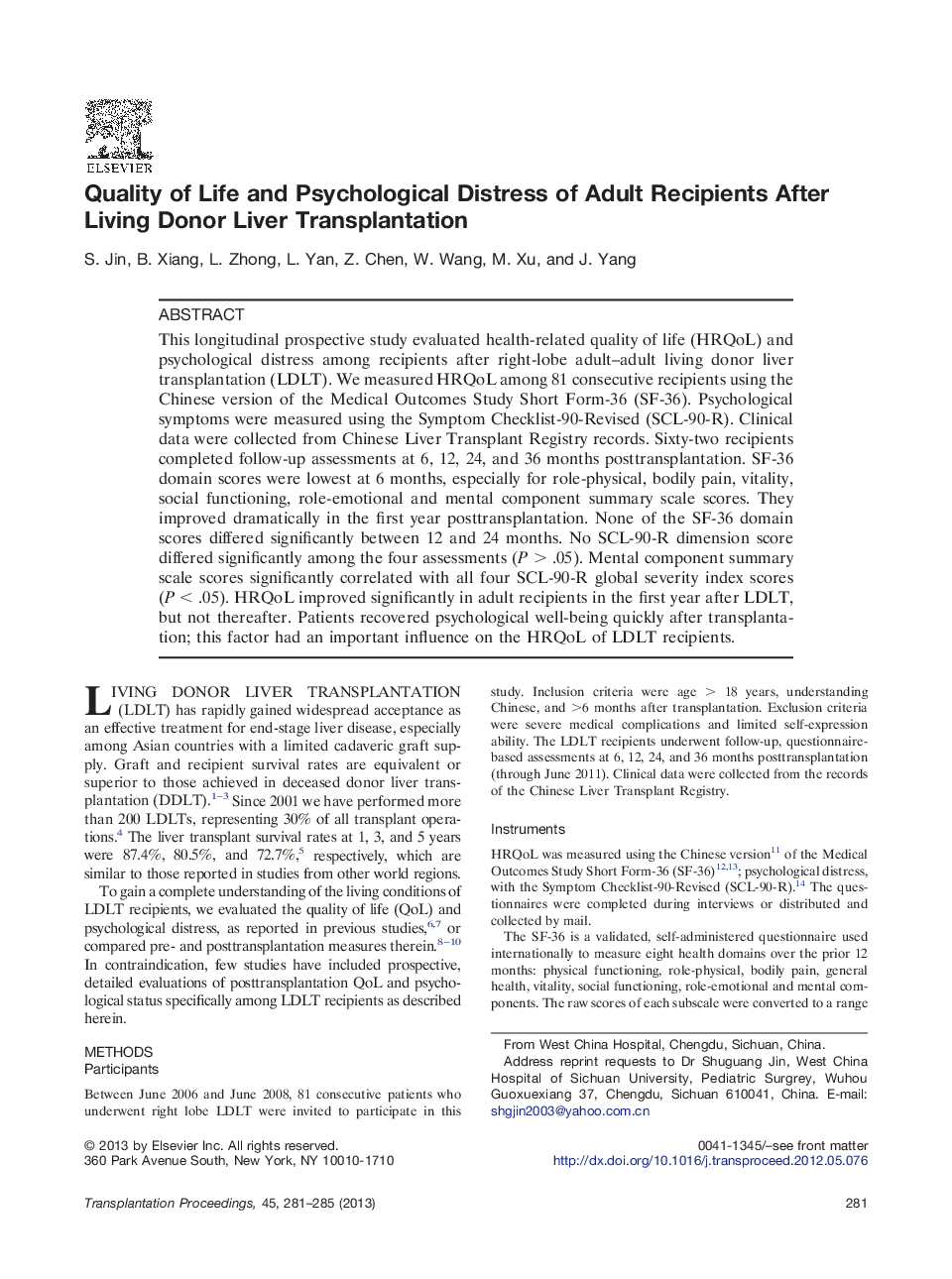| Article ID | Journal | Published Year | Pages | File Type |
|---|---|---|---|---|
| 4257108 | Transplantation Proceedings | 2013 | 5 Pages |
This longitudinal prospective study evaluated health-related quality of life (HRQoL) and psychological distress among recipients after right-lobe adult–adult living donor liver transplantation (LDLT). We measured HRQoL among 81 consecutive recipients using the Chinese version of the Medical Outcomes Study Short Form-36 (SF-36). Psychological symptoms were measured using the Symptom Checklist-90-Revised (SCL-90-R). Clinical data were collected from Chinese Liver Transplant Registry records. Sixty-two recipients completed follow-up assessments at 6, 12, 24, and 36 months posttransplantation. SF-36 domain scores were lowest at 6 months, especially for role-physical, bodily pain, vitality, social functioning, role-emotional and mental component summary scale scores. They improved dramatically in the first year posttransplantation. None of the SF-36 domain scores differed significantly between 12 and 24 months. No SCL-90-R dimension score differed significantly among the four assessments (P > .05). Mental component summary scale scores significantly correlated with all four SCL-90-R global severity index scores (P < .05). HRQoL improved significantly in adult recipients in the first year after LDLT, but not thereafter. Patients recovered psychological well-being quickly after transplantation; this factor had an important influence on the HRQoL of LDLT recipients.
